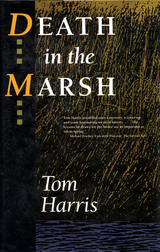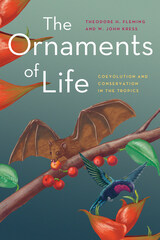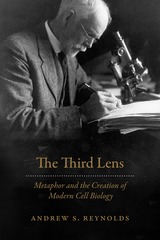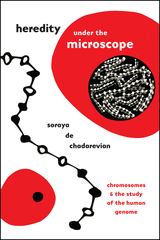Visions of Cell Biology: Reflections Inspired by Cowdry's "General Cytology"
University of Chicago Press, 2017
Cloth: 978-0-226-52048-3 | Paper: 978-0-226-52051-3 | eISBN: 978-0-226-52065-0
Library of Congress Classification QH581.2.V58 2017
Dewey Decimal Classification 571.6
Cloth: 978-0-226-52048-3 | Paper: 978-0-226-52051-3 | eISBN: 978-0-226-52065-0
Library of Congress Classification QH581.2.V58 2017
Dewey Decimal Classification 571.6
ABOUT THIS BOOK | AUTHOR BIOGRAPHY | REVIEWS | TOC | REQUEST ACCESSIBLE FILE
ABOUT THIS BOOK
Although modern cell biology is often considered to have arisen following World War II in tandem with certain technological and methodological advances—in particular, the electron microscope and cell fractionation—its origins actually date to the 1830s and the development of cytology, the scientific study of cells. By 1924, with the publication of Edmund Vincent Cowdry’s General Cytology, the discipline had stretched beyond the bounds of purely microscopic observation to include the chemical, physical, and genetic analysis of cells. Inspired by Cowdry’s classic, watershed work, this book collects contributions from cell biologists, historians, and philosophers of science to explore the history and current status of cell biology.
Despite extraordinary advances in describing both the structure and function of cells, cell biology tends to be overshadowed by molecular biology, a field that developed contemporaneously. This book remedies that unjust disparity through an investigation of cell biology’s evolution and its role in pushing forward the boundaries of biological understanding. Contributors show that modern concepts of cell organization, mechanistic explanations, epigenetics, molecular thinking, and even computational approaches all can be placed on the continuum of cell studies from cytology to cell biology and beyond. The first book in the series Convening Science: Discovery at the Marine Biological Laboratory, Visions of Cell Biology sheds new light on a century of cellular discovery.
Despite extraordinary advances in describing both the structure and function of cells, cell biology tends to be overshadowed by molecular biology, a field that developed contemporaneously. This book remedies that unjust disparity through an investigation of cell biology’s evolution and its role in pushing forward the boundaries of biological understanding. Contributors show that modern concepts of cell organization, mechanistic explanations, epigenetics, molecular thinking, and even computational approaches all can be placed on the continuum of cell studies from cytology to cell biology and beyond. The first book in the series Convening Science: Discovery at the Marine Biological Laboratory, Visions of Cell Biology sheds new light on a century of cellular discovery.
See other books on: Cell Biology | Cells | Cytology | Maienschein, Jane | Visions
See other titles from University of Chicago Press

























